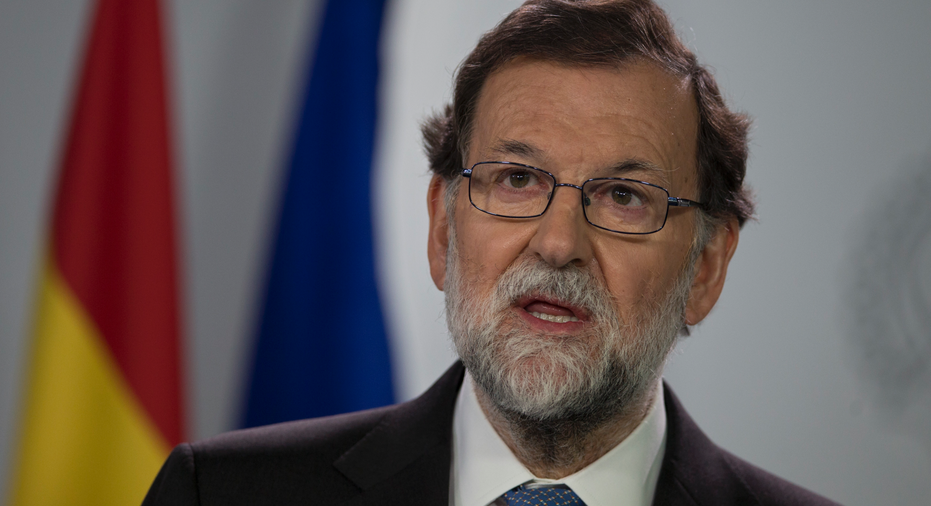AP ANALYSIS: Catalonia endgame keeps Spain on tenterhooks

LISBON, Portugal – Spanish Prime Minister Mariano Rajoy's conservative government is aiming to crush Catalonia's secessionist aspirations by firing the wealthy region's government, dissolving its parliament and calling early elections there.
It may have opened a Pandora's box, however, and the plan could easily blow up in Rajoy's face.
Spain is still, as El Pais commentator Ricardo de Querol wrote in Saturday's edition, in "a high-risk situation."
Amid the uncertainty gripping Spain, one thing is sure: despite the government's intervention, there is no end in sight to the friction and tension between Madrid and Barcelona after a defiant Catalan parliament flouted the country's constitution and voted for a unilateral declaration of independence Friday. The weeks leading up the Dec. 21 ballot promise to be fraught with incident.
Rajoy has the law on his side. But the pro-independence Catalan leaders have the hearts and minds of many people in their northeastern part of Spain.
Protests by the independence movement draw hundreds of thousands of people into the streets of Barcelona. These displays of secessionist fervor routinely attract huge numbers. Demonstrations in favor of staying part of Spain have also brought out large crowds in Barcelona.
Rajoy, a tall and stern career politician with a graying beard and glasses, has the support of the country's main opposition Socialist party, the Ciudadanos pro-business party which heads the opposition in the Catalan parliament, and of other European Union leaders in his battle against Catalonia's ambitions to create a new country with its capital as Barcelona.
Polls suggest the region of 7.5 million people, which accounts for about one fifth of Spain's annual gross domestic product, is roughly evenly split on secession. The Catalan pro-independence lobby, however, tends to be louder and more vigorous in pressing its case.
Catalonia's ousted regional President Carles Puigdemont is something of a foil for Rajoy. The former journalist and amateur rock guitarist has been a wily operator in his fight with the central government, keeping Rajoy on edge with a cat-and-mouse game. That strategy by Puigdemont and his allies is likely to continue.
The region's pro-independence parties could boycott the December election, in an attempt to deny it political legitimacy. The ballot could also backfire on Rajoy, delivering a steadfastly pro-independence Catalan parliament.
Regional government workers could adopt a policy of disobedience or non-cooperation with the central government which will be running Catalonia. Demonstrators could physically try to prevent police from removing Catalan officials from their offices.
The populist sentiment driving the Catalan backers of secession could quickly spin out of control. Querol, the El Pais commentator, wrote that Puigdemont has fired up his supporters and noted that "you can't cage a monster which has been gorging and running free."
Catalonia will torment Rajoy for some time yet. The road out of the impasse is strewn with potential hazards. He must weigh the advantages of facing down Catalonia against the disadvantages of creating heroes who portray themselves as freedom fighters, eager to cast off Madrid's yoke.
All the time there will be, in the background, the fear of violence in the streets. So far, though, the separatist movement has taken pride in its peaceful reactions.
In the end, it is Catalans who may come out worse from Spain's severest constitutional crisis in decades.
Investors wrinkle their nose at political uncertainty and social unrest. By the end of last week, about 1,700 businesses — including banks and large companies — had shifted their official headquarters out of Catalonia to ensure they will be able to continue operating under European Union laws if the region secedes.
Catalan voters may consider the money in their pocket in the election four days before Christmas.
___
EDITOR'S NOTE: Barry Hatton, an Associated Press reporter since 1997, has reported on Iberian affairs for the AP for the last 20 years.



















